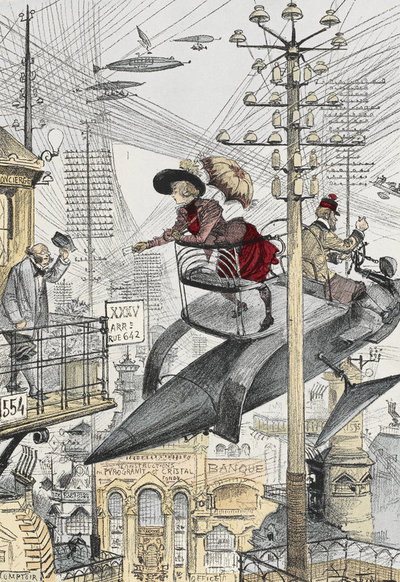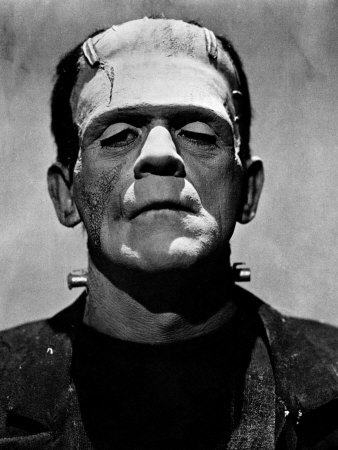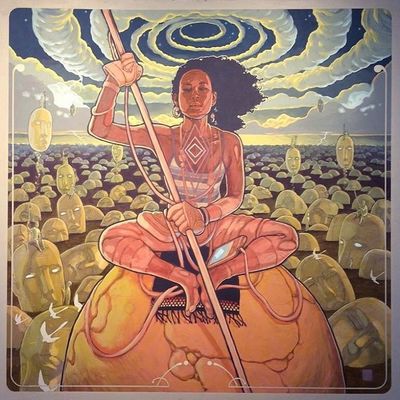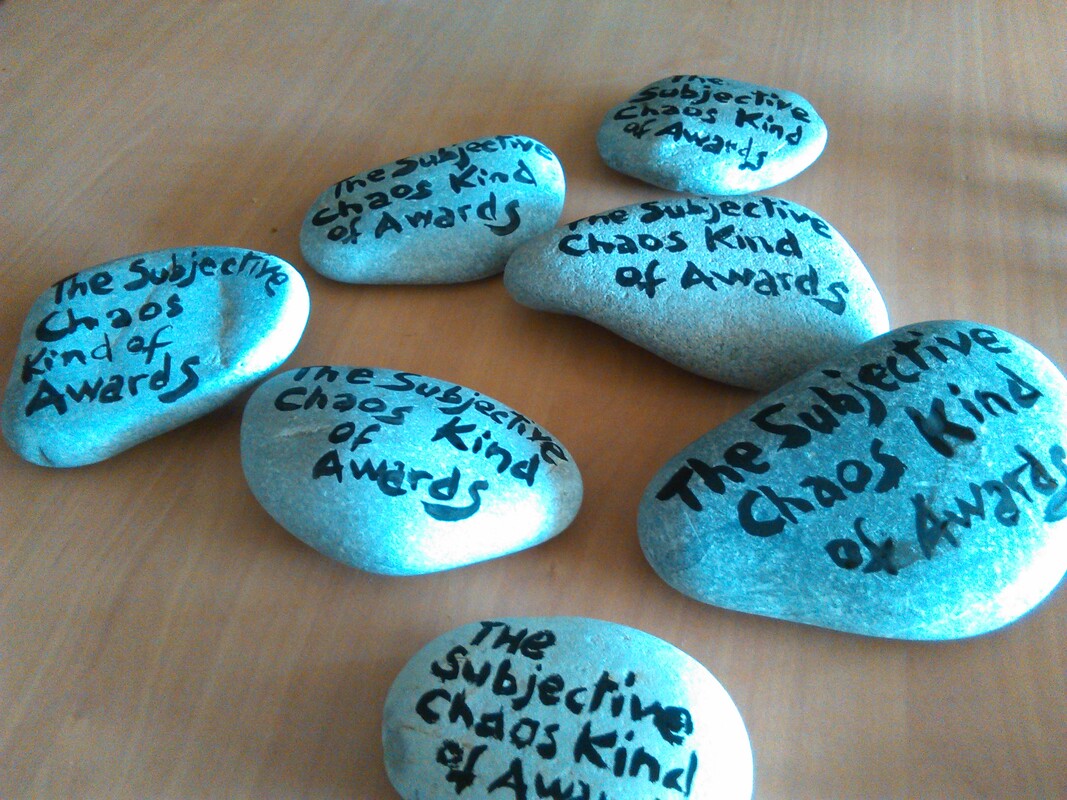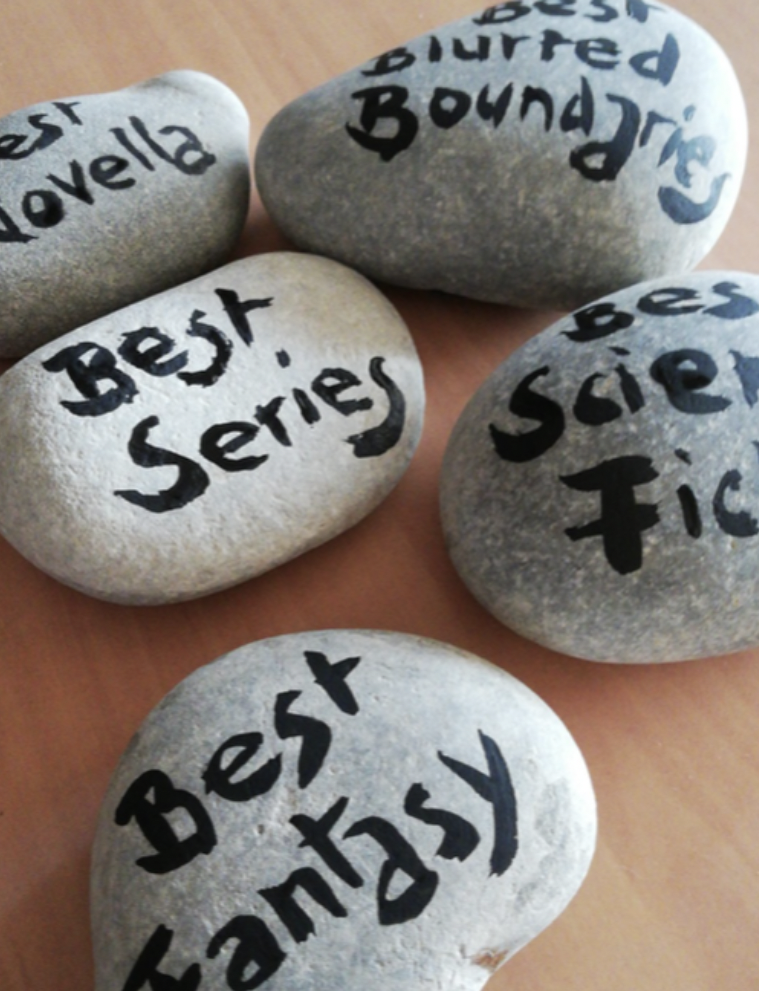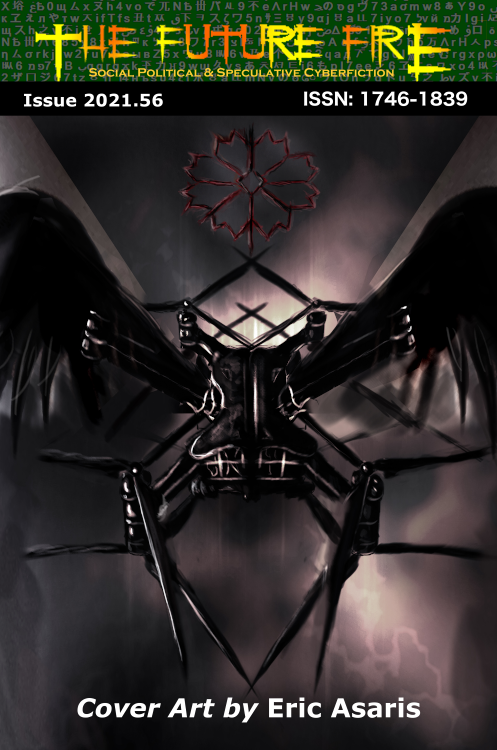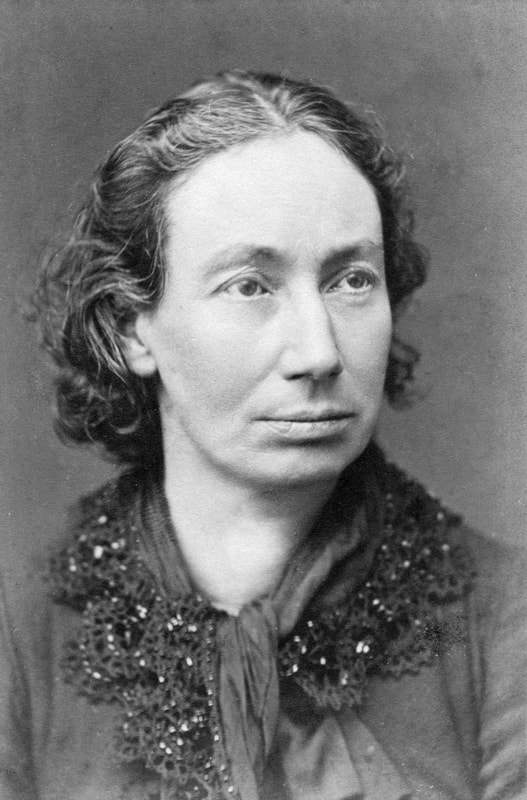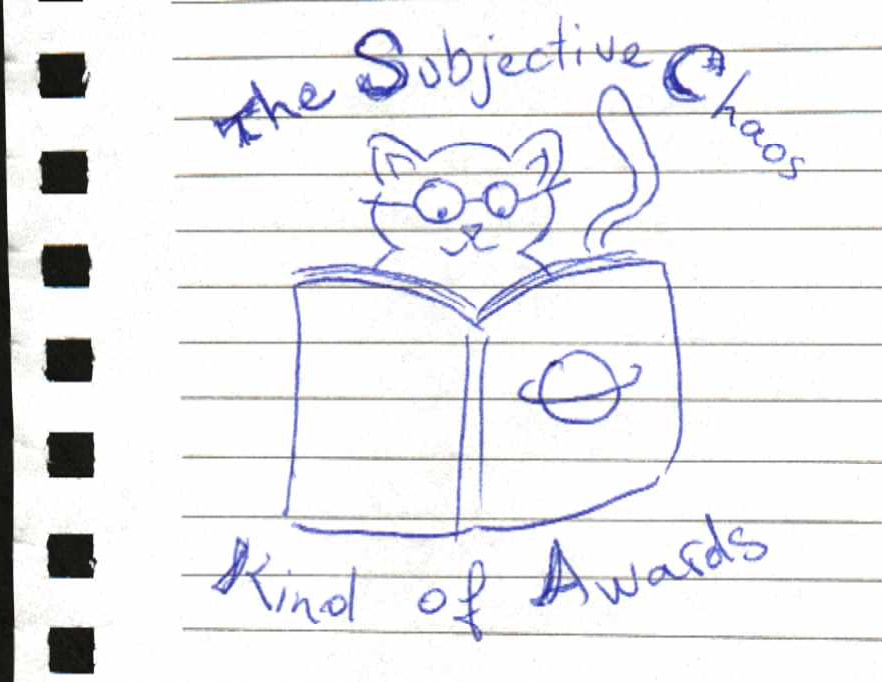|
The Subjective Chaos Kind of Awards are back, and I'm back as a juror too after a year of hiatus.
Our nomination list is in and we have so many good stories on it!
When the Sad Puppies affair happened, it should have rung two alarm bells, not just one. Don't get me wrong, it was good to see people galvanised by the realisation that scifi and fantasy were full of racists, sexists, homophobes and transphobes. A lot of us had been telling that for a long time, even experienced it painfully. The alarm bell came late. Very late. But it came and that was good because from that emerged a realisation that things were wrong. Please note I'm saying realisation and not necessarily action… The second alarm bell didn't happen. The second alarm bell should have been: "What the ef is wrong with an organisation whose awards can be manipulated in such a way?" A few voices though raised the issue. As for the racism, sexism, etc. in times not-so-long past (or present), no one really listened, or people said, "But look! It's robust! We've tweaked the rules and avoided the worst!" That, in itself, should have been a worry: preserving the institution was more important than attacking the root of the problems, its own organisation. Fast forward 2020 and the Saudi Arabia bid. All of a sudden, everyone realises that there is a problem. Well, yes, there effing is. I won't get into why the idea of hosting a con in Saudi Arabia is a bad idea because, honestly, if you can't understand it or if you find excuses to it, you should stop reading right now. But the fact is that we have now people asking: "How did that happen?" Well, in the same way that the Sad Puppies happened. The only thing you need to vote in the Hugos or the bids is money. Basically, WorldCon and the Hugos is an oligarchy. Let's face it, WorldCon was in its inception as much "world" as the US baseball championship is "World" series. But the thing is, if it's written on the door long enough, people end up believing it. And while an old guard is still wondering what happened to PDFs fanzines, a lot of new, diverse, creators and readers who passed the threshold are saying that there's something rotten in here. But who has the money and the time to decide on what happens and on how the organisation changes (or not)? Again, the oligarchy. And one of the things that leaves me bemused is how all those people say that they are not a hierarchical organisation, not top-down, that they're anarchists really. They are absolutely blind to the fact that they may not be hierarchical inside the circle but to actually reach the circle, you already have to belong to the top, or at least the upper-middle of the social hierarchy because, let's remind it again, time and money. And no, that doesn't bloody make you an anarchist at all. Please check the definition because when you say that you look perfectly ridiculous to anyone who knows what anarchy is. At the same time, the magnificent effort pulled by a team of dedicated fans and creators to bring CoNZealand Fringe into existence proved that something else is possible. Something relevant, international, and diverse. I think that, nonetheless, the Fringe has one limit. Through the quarantine, a lot of us have learned that online is fine, but with meatspace also comes a different kind of relationships, very valuable, whether it is a quiet smoke outside when you meet writers or others fans, getting into a passionate discussion with strangers around a drink, deciding to wander into the streets in a city you don't know with your mates… All things that won't be possible in Saudi Arabia if you're LGBTQ+ or a woman alone. But it's fine, it's fine. The good people with all the money and time on their hands will save us with their enlightened voting. Amazing how reminiscent that is to me of some regimes during the Antiquity or the Third Republic in France (spoiler: there was an actual anarchist revolution in the middle of that, La Commune). After the absolute clusterfork that the ceremony was, I saw some people realising that less than 2000 people vote in the Hugos. Less than 2000 people for the SFF awards that is the most recognised around the world. It is in the favour of wonderful, talented and hard working creators right now, and I am delighted with the results. But it also means that a) the Hugos are not representative of the community at large and b) what happens when the people, whose only qualification is to have money, decide that all this "diversity thing is fine but let's go back to some proper serious mediocre white men"? Because it'll happen. Conservatism always pushes bach and with less than 2000 voters, the Hugos are easy to hijack if you have the money for it and an agenda less transparent than the Puppies'. Where's the future? Is it in waiting for an organisation that changes so slowly that it makes the Jurassic look positively modern to finally catch up? Is it in going fully online and finally getting us rid of the money constraints that exclude so many fans year after year? Is it in building something new, both online and in meatspace, leaving the old to those who faithfully guard it with their rituals and ceremonies? As far as I'm concerned, I'm always fond of saying: burn it to the ground!
|
"While we were reading" is an irregular feature about reading science-fiction and fantasy. It can contain guest posts. Nothing fancy, come as you are.
It is also home to all the Subjective Chaos Kind of Awards announcements. |
WHAT IS THE MIDDLE SHELF?
The middle shelf is a science-fiction and fantasy books reviewS blog, bringing you diverse and great stories .
PLEASE SUPPORT AUTHORS.
IF YOU LIKE IT, BUY IT. |
ON THE MIDDLE SHELF
|
KEEP IN TOUCH WITH THE MIDDLE SHELF
|
